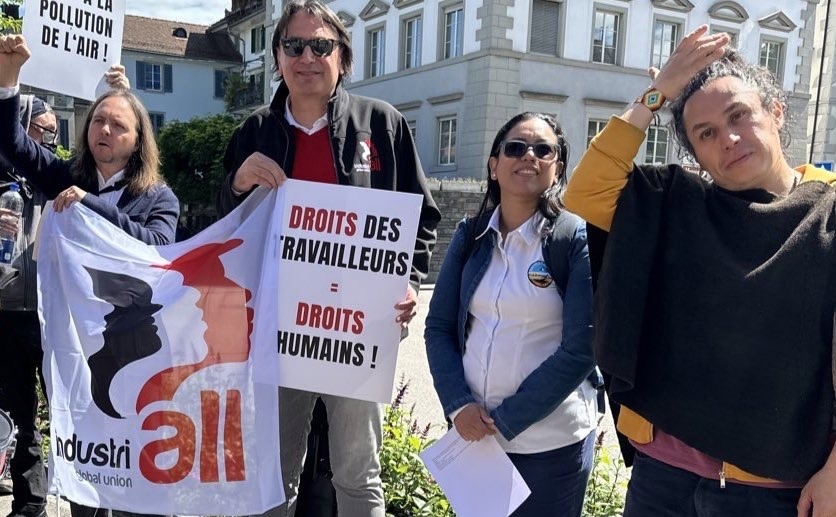5 June, 2024A delegation of trade union representatives, NGOs, indigenous and impacted communities from Colombia, Peru, the Democratic Republic of Congo (DRC), the UK and Switzerland attended Glencore’s annual general meeting (AGM) in Zug, Switzerland on 29 May, to demand answers from the company board on the company’s continued lack of willingness to address serious environmental, social and governance issues across its global operations and its aversion to dialogue.
“Glencore’s extensive workers’ and human rights violations dominated the meeting yet again. We are concerned with the different treatment of workers at different plants, we are worried about lack of worker consultation when mines close and the exclusion of workers in the company’s future,”
says Kemal Özkan, IndustriALL assistant general secretary.
The board and shareholders were reminded about the irresponsible closure at Prodeco mine in Colombia which did not involve any social dialogue and transparency.
“Glencore and Prodeco dismiss staff and then rehire them as a sub-workforce with no support. This often leads to conflicts. There is no social dialogue between employers and workers. This is no way to run a company sustainably. I want to know what measures Glencore will take to avoid these situations, because what you say in public is not what is happening on the ground,”
says Claudia Blanco, from IndustriALL Colombian affiliate SINTRACARBON.
Jaime Lopez, national secretary of SINTRACARBON, was concerned about the contract between Cerrejon and the government which will end in 2034 which means that the mine will close.
“Employees need to know that there is a plan in place for closure and that they can access it. Does this plan consider labour, community, and environmental aspects?”
Glen Mpufane, IndustriALL’s mining director, highlighted that the recent strike at Mumi mine in DRC was a result of different treatment of workers employed by the same company, Glencore.
IndustriALL stressed that Glencore needs to address the arsenic air pollution at the Rouyn-Noranda’s smelter in Quebec, which emits the carcinogenic 30 times more than the allowed provincial limit. IndustriALL and its affiliate Fédération De L’industrie Manufacturiere (FIM) intend to urgently push for fast tracking the AERIS initiative.
The Glencore CEO and chairman tried to address the issues raised but much like last year workers were told to speak to regional management.
“We are cautiously optimistic; the CEO and the chairman came across as engaging. They indicated that they are willing to engage further, and we intend to hold them accountable to that. They can’t portray one image publicly and behave differently on the ground, they must take responsibility for all their actions,”
says Glen Mpufane.
